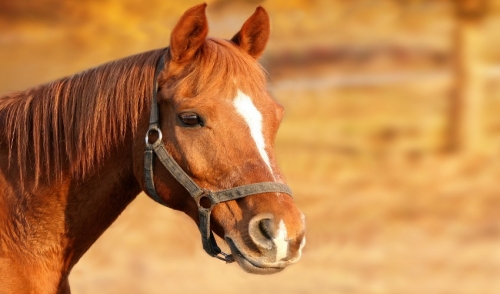{article.name}
Why Vaccines Matter for Horse Health

- Share this:
- Share on Facebook
- Pin on Pinterest
- Tweet on Twitter
Vaccines are widely accepted as essential for proper pet care, but there is little regulation and few consistent recommendations about vaccinating horses, whether they are livestock, working animals, show horses, or casual equine friends. Because horses are naturally hardy animals it can be difficult to justify frequent vaccinations, but a regular course of proper vaccinations can help keep your horse healthy and thriving.
Why Recommendations Differ
Every horse has individual needs and may have different vaccination requirements. Different factors will influence which vaccines your horse should receive, including…
- Age, gender, size, weight and overall health of the animal
- Exposure to other horses and different livestock
- Local history of disease outbreaks
- Horse type and use, such as breeding, working or show
- Local environmental conditions and geography
A thorough veterinary evaluation is necessary to assess which vaccines are best for your horse, which ones may be a good idea and which could likely be passed over without problems. You may also want to consult with several other horse owners, get a second opinion or do your own individual research before proceeding with a detailed schedule of vaccinations and booster shots.
Vaccinations Your Horse May Need
There are dozens of different vaccinations a horse could get, but most animals will not need every single one. The most common vaccinations – depending on each horse's individual health needs and concerns – include…
- Tetanus
- Sleeping sickness
- Equine influenza
- Potomac horse fever
- Strangles
- Rotavirus
- Encephalitis
- Botulism
- Rabies
- Rhinopneumonitis
- West Nile virus
Some of these vaccinations may only need to be administered to foals or breeding mares, while others may be necessary for all horses. Some are one-time vaccinations, while others require regular boosters. Consult your veterinarian for a vaccination schedule and personalized recommendations for your horse.
Beyond Vaccinations
While vaccinations can help a horse be more resistant to diseases, no vaccine is 100-percent effective, especially in case of heavy disease outbreaks. To help vaccines be more effective and keep your horse healthy…
- Always provide a nutritious diet that meets the animal's needs for suitable fodder, including essential vitamins and minerals as well as plentiful water.
- Exercise the horse properly to keep it in good condition for general good health. This includes both training and more vigorous workouts.
- Keep the environment clean and healthy by minimizing pasture, stall or corral problems such as mud, pests or dangerous conditions. Good shelter should always be available.
- Provide regular veterinary care, including proper dental care, hoof care and regular checkups to take care of any problems before they become aggravated.
Chosen carefully and administered with your individual horse's needs in mind, vaccinations can help your horse have a long, healthy life.
Special Offers
We are constantly adding new specials to our site. Be sure to check back often!


Comments